La deuxième cohorte francophone d’iPRIS, en cours à Luxembourg, illustre une conviction forte : investir dans les régulateurs, c’est investir dans l’avenir numérique de l’Afrique. Loin de se limiter à un simple programme de formation, iPRIS représente un renforcement stratégique des capacités qui place les autorités de régulation au cœur de la transformation numérique.
Inclusion et équité : renforcer la régulation sociale
Les sessions animées par Cheikh Sadibou Sakho (SPIDER) ont mis en évidence que l’inclusion numérique n’est pas qu’une question d’infrastructures. Elle repose sur la capacité des régulateurs à intégrer les dimensions sociales dans leurs politiques. À savoir, genre, mobilité, disparités géographiques.
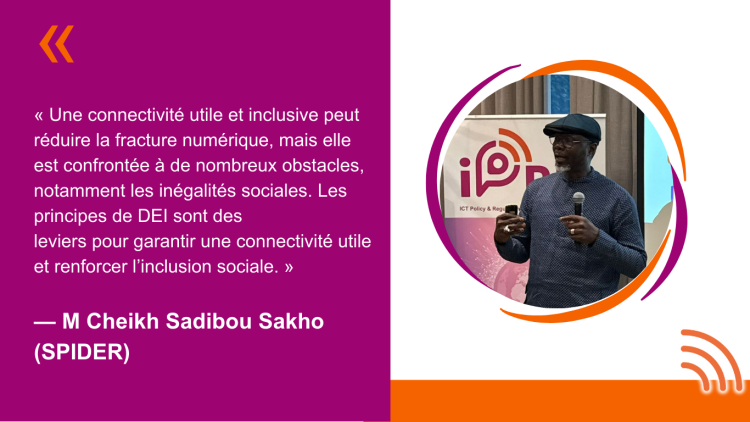
« L’inclusion doit refléter les réalités vécues par chaque citoyen », a-t-il insisté.
En renforçant la capacité des régulateurs à s’approprier des outils pour analyser et intégrer ces enjeux, iPRIS leur permet de transformer leurs pratiques en leviers de cohésion sociale.
Suivi, évaluation et redevabilité : la régulation crédible
Pour Katja Sarajeva (SPIDER), renforcer les capacités, c’est aussi donner aux régulateurs les moyens d’ancrer leurs réformes dans l’impact durable. À travers le suivi, évaluation et redevabilité (SERA) elle a montré comment l’évaluation, la redevabilité et l’apprentissage collectif deviennent des gages de confiance auprès des citoyens et des parties prenantes.
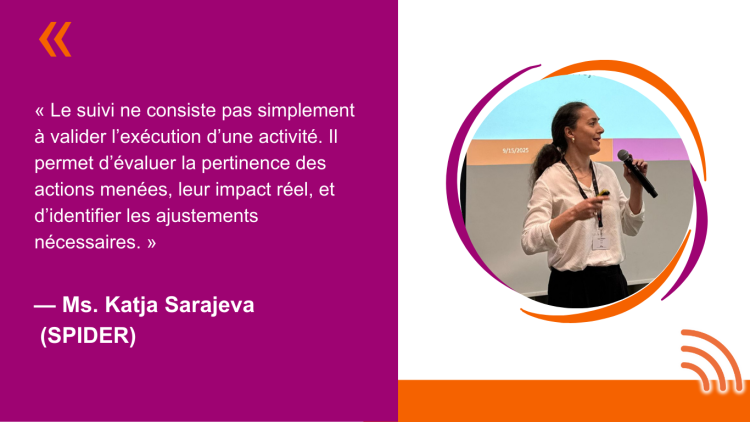
Ces méthodes transforment les régulateurs en acteurs crédibles capables de bâtir des écosystèmes numériques dignes de confiance.
Cybersécurité et résilience : anticiper les risques
Les experts du partenaire technique d’iPRIS; l’Institut Luxembourgeois de Régulation (ILR) ont mis en garde contre les menaces cyber, rappelant que la régulation moderne doit inclure la résilience des réseaux et la protection des citoyens. En s’inspirant de la directive européenne NIS2, les discussions ont ouvert la voie à des adaptations africaines, adaptées aux réalités locales. Former les régulateurs à ces enjeux, c’est investir dans une Afrique numérique plus sûre et résiliente.
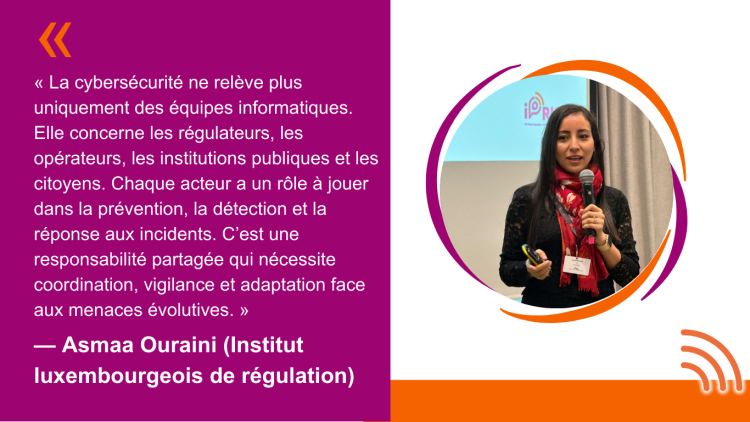
Numérotation et adressage : planifier l’avenir
Avec Tom Meyers (ILR) et Richard Klein (IBPT), les participants ont exploré la numérotation et l’adressage IP comme outils stratégiques de souveraineté numérique.
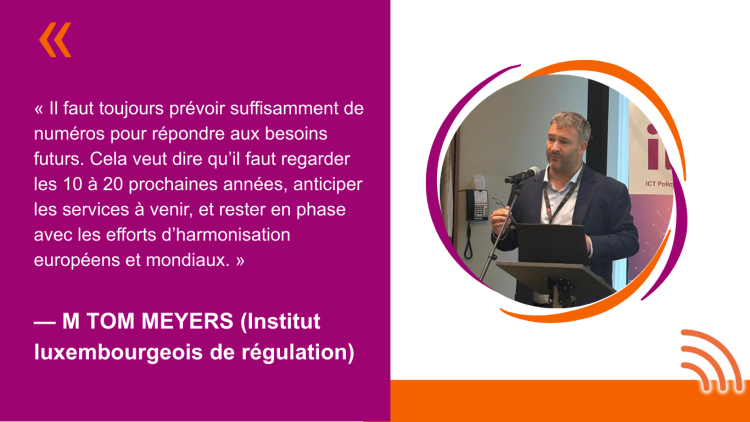
Ces compétences permettent aux régulateurs africains de sécuriser des ressources critiques et d’assurer une répartition équitable, condition d’une connectivité durable.
Coopération régionale : un investissement collectif
La présence à Luxembourg de représentants des quatre organisations sous-régionales – ARTAC, ARTAO, EACO et CRASA – marque une première historique. En rassemblant pour la première fois ces acteurs sous-régionaux, iPRIS investit dans une coopération africaine intégrée, renforçant les régulateurs au-delà des frontières nationales.
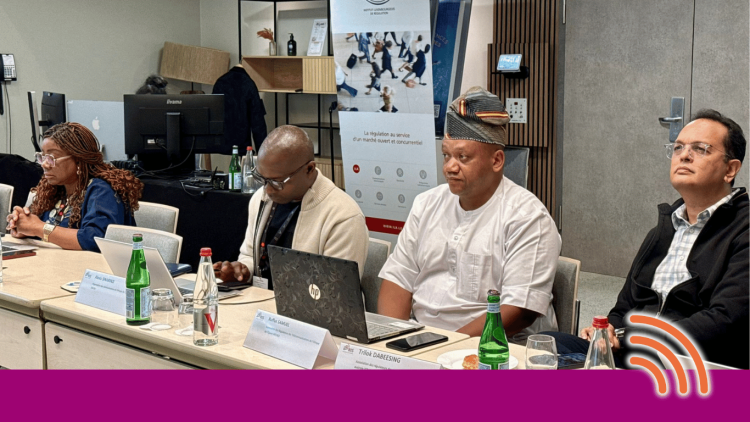
Transformer les connaissances en action
Enfin, à travers les ateliers de gestion de projet animés par SPIDER et l’accompagnement direct de l’ILR, les régulateurs transforment leurs apprentissages en initiatives de changement concrètes. Ces projets stratégiques, centrés sur la réduction de la fracture numérique, témoignent de la valeur d’un investissement à long terme dans le renforcement des capacités.
Un pari sur l’avenir numérique africain
Cette deuxième semaine a confirmé que la régulation n’est pas seulement technique : elle est sociale, économique et politique. En renforçant les compétences des régulateurs africains, iPRIS contribue à instaurer la confiance, l’inclusion et la résilience au cœur de la transformation numérique.
Investir dans les régulateurs, c’est investir dans une Afrique numérique plus équitable, plus durable et véritablement souveraine.
iPRIS est coordonné et mis en œuvre par SPIDER en partenariat stratégique et technique avec l'Autorité suédoise des postes et des télécommunications (PTS) et l'Institut luxembourgeois de régulation (ILR).
Le programme est financé par l’Union européenne, la Suède et le Luxembourg, dans le cadre de l’Initiative Équipe Europe D4D pour l’économie et la société numériques en Afrique subsaharienne (Code : 001).





